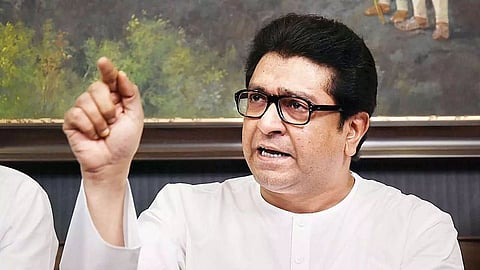
- Home
- Live Blog
- Breaking News
- Top Headlines
- Cities
- NE News
- Sentinel Media
- Sports
- Education
- Jobs

MUMBAI: Terming the ongoing COVID-19 pandemic as a health emergency of an unprecedented magnitude ever witnessed by India in the past century, Maharashtra Navnirman Sena (MNS) President Raj Thackeray said that the healthcare system has caved-in and this is not the time to indulge in "petty politics".
In a sharp letter to Prime Minister Narendra Modi, Raj Thackeray said he was shocked to learn that the Centre now plans to control the purchase and distribution of the Remdesivir injection, a key drug used in the treatment of COVID-19.
"I fail to understand why the Central government has decided to control the purchase and distribution of Remdesivir. It is the state government's machinery - its Health Department, local institutions such as municipal corporations and staff at all levels that are at the forefront of this crisis," he said.
The MNS chief pointed out that these authorities "are working with utmost dedication and facing the daily challenge" of ensuring the right treatment to the patients.
"Why, then, should the Central government control the purchase and distribution of Remdesivir?" the MNS leader demanded of the PM, urging him to let states have their customised handling of buying, distributing and using Remdesivir.
Referring to the COVID-19 horrors being witnessed across the country, he said it is "heartbreaking" to see the zooming death rate, and images of queues of dead bodies awaiting their turn in Gujarat and other states which are "very disturbing".
"The situation is very grim and terrifying. This is not the time to indulge in petty politics. Our health system has collapsed. We must come together and face the situation collectively," Raj Thackeray — who is the cousin of Chief Minister Uddhav Thackeray — urged the PM.
The MNS chief's letter came hours after the ruling Maha Vikas Aghadi (MVA) leaders like ministers Nawab Malik, Rajesh Tope, Dr Jitendra Awhad, MP Sanjay Raut, Congress state President Nana Patole and others expressed their dismay at the Centre's move to allot only 26,000 Remdesivir vials to the state per day against its daily requirement of at least 50,000 injections. (IANS)